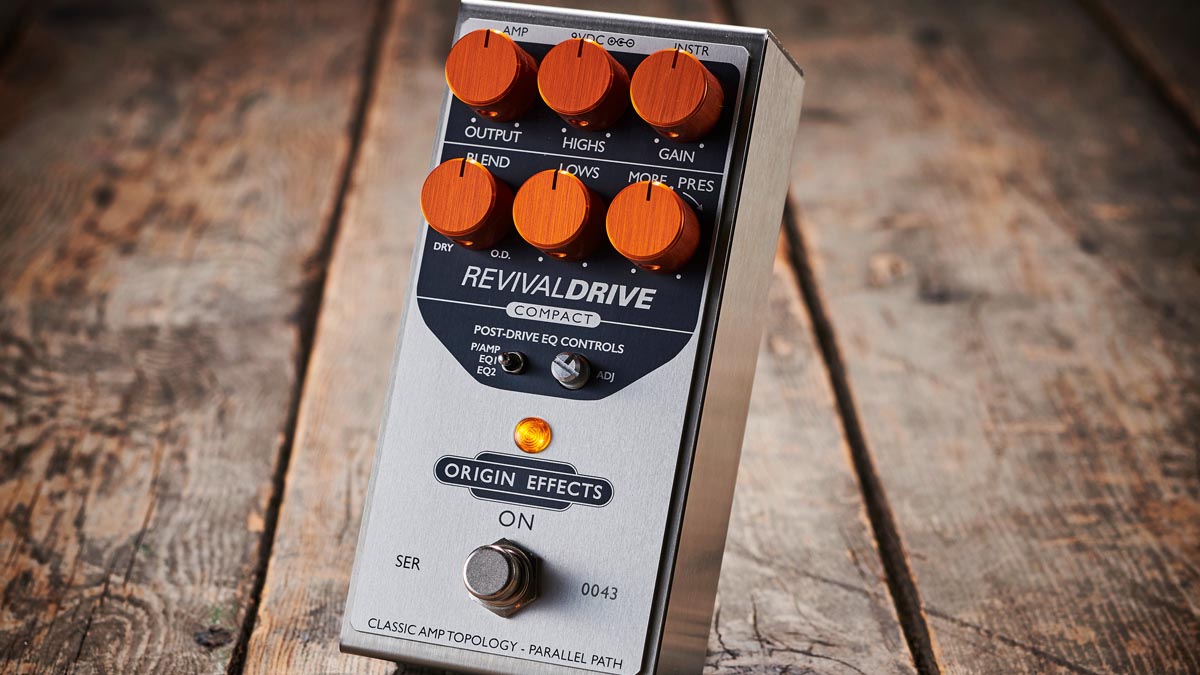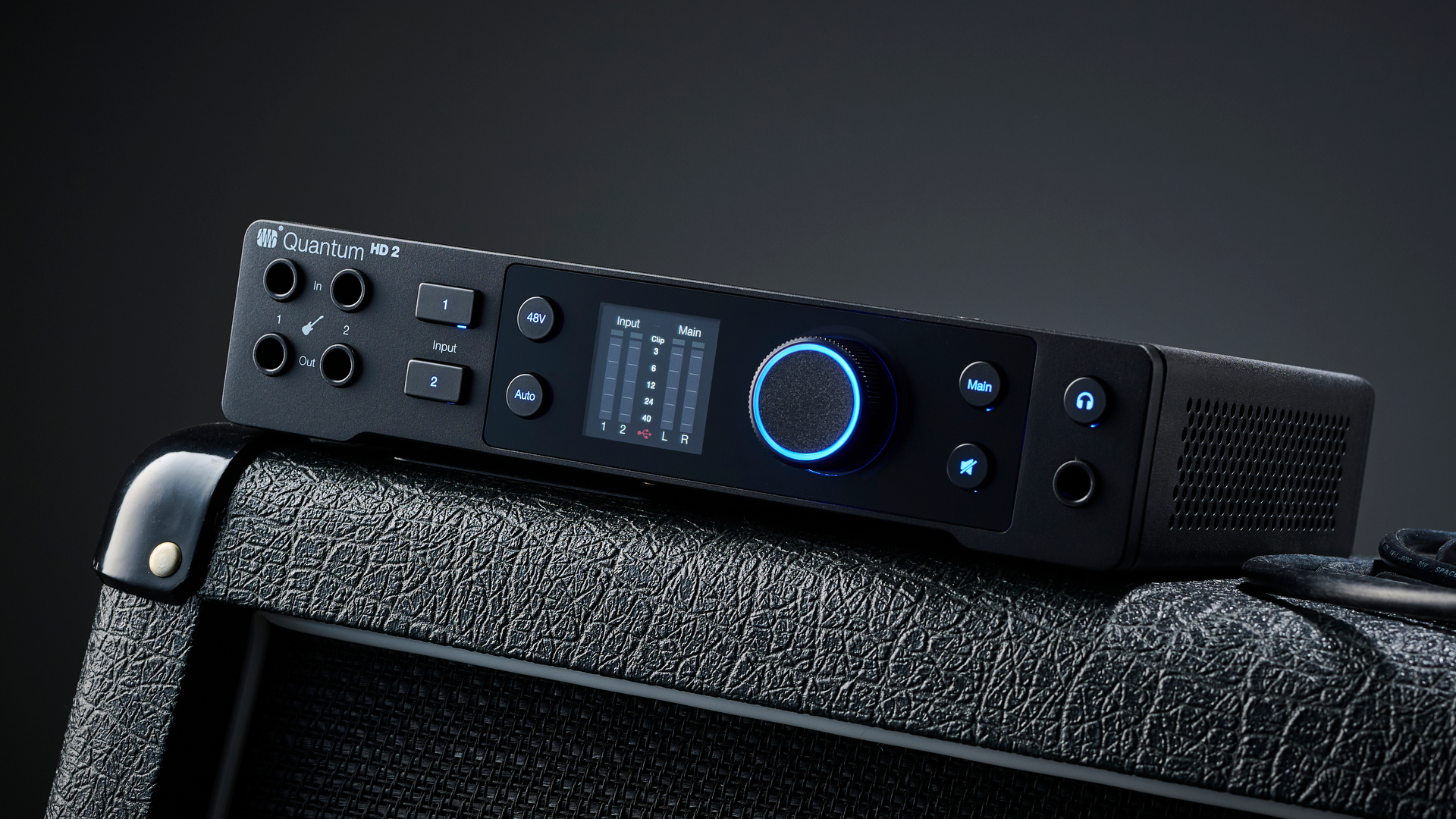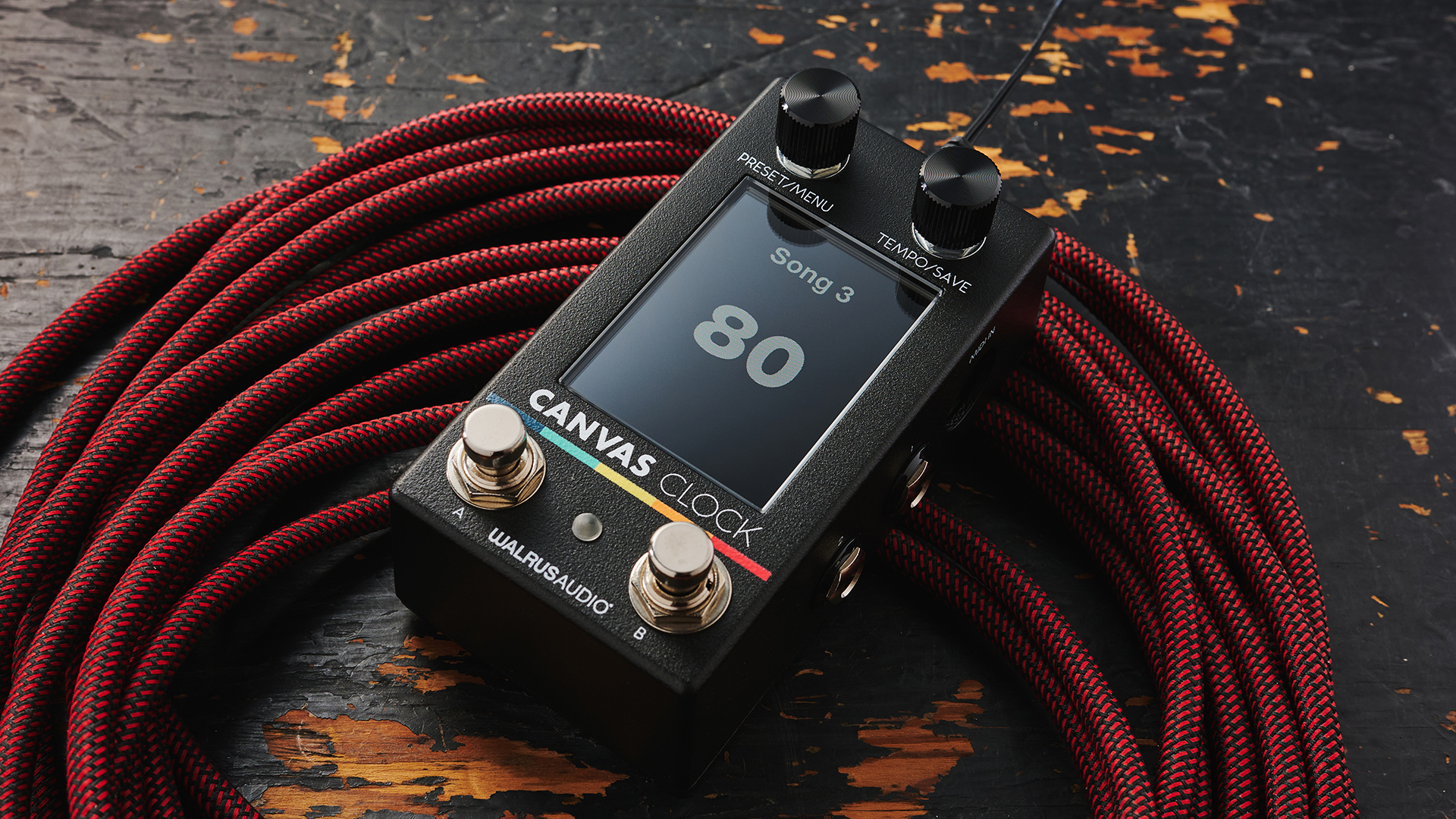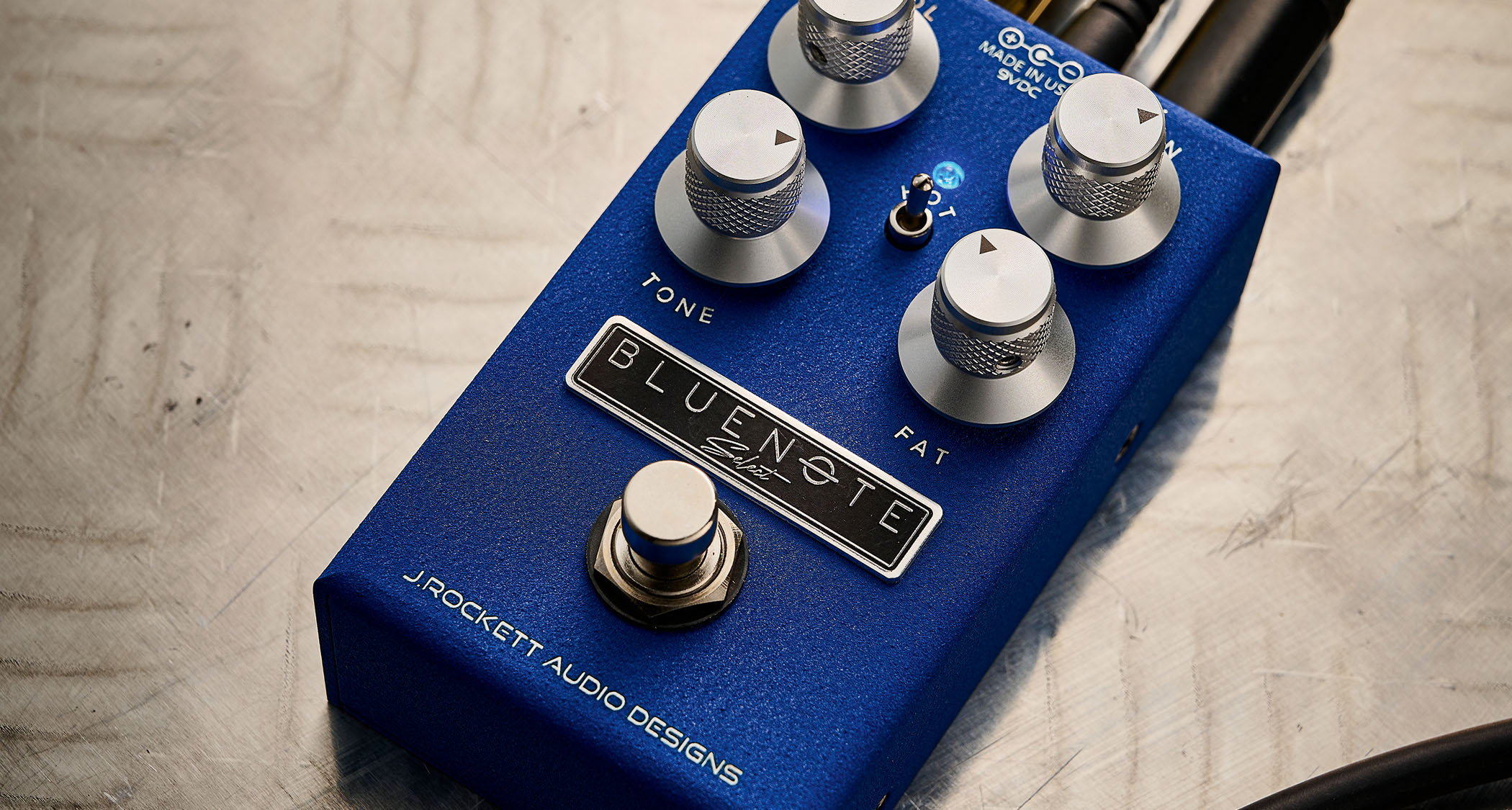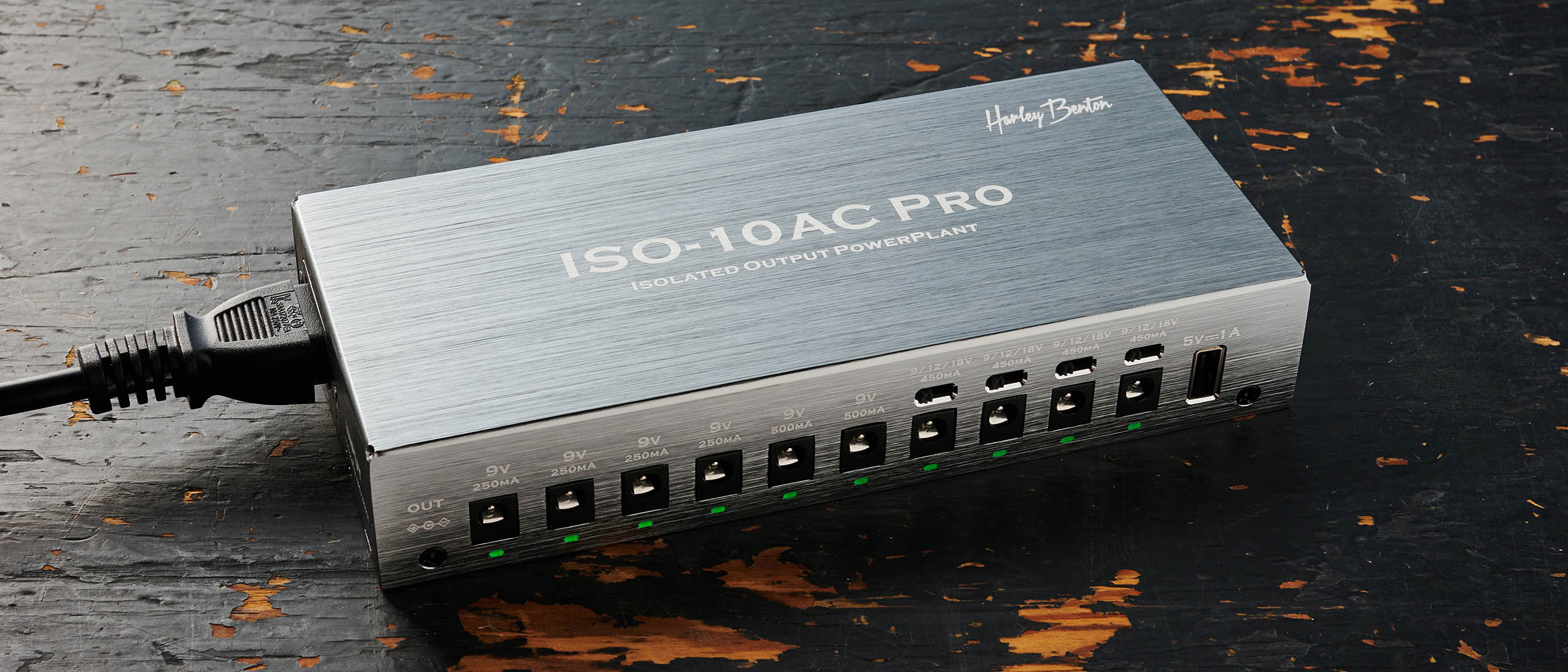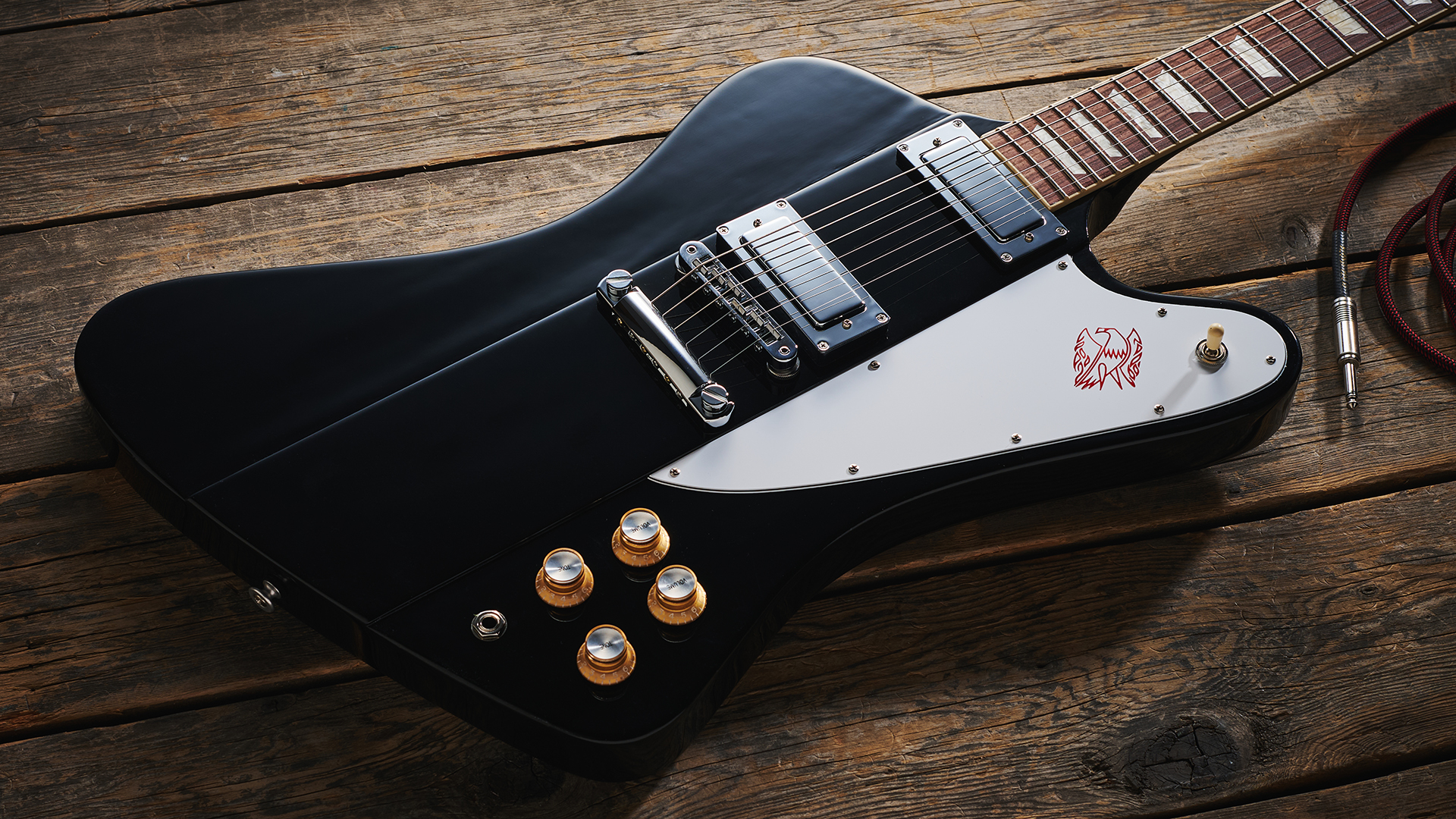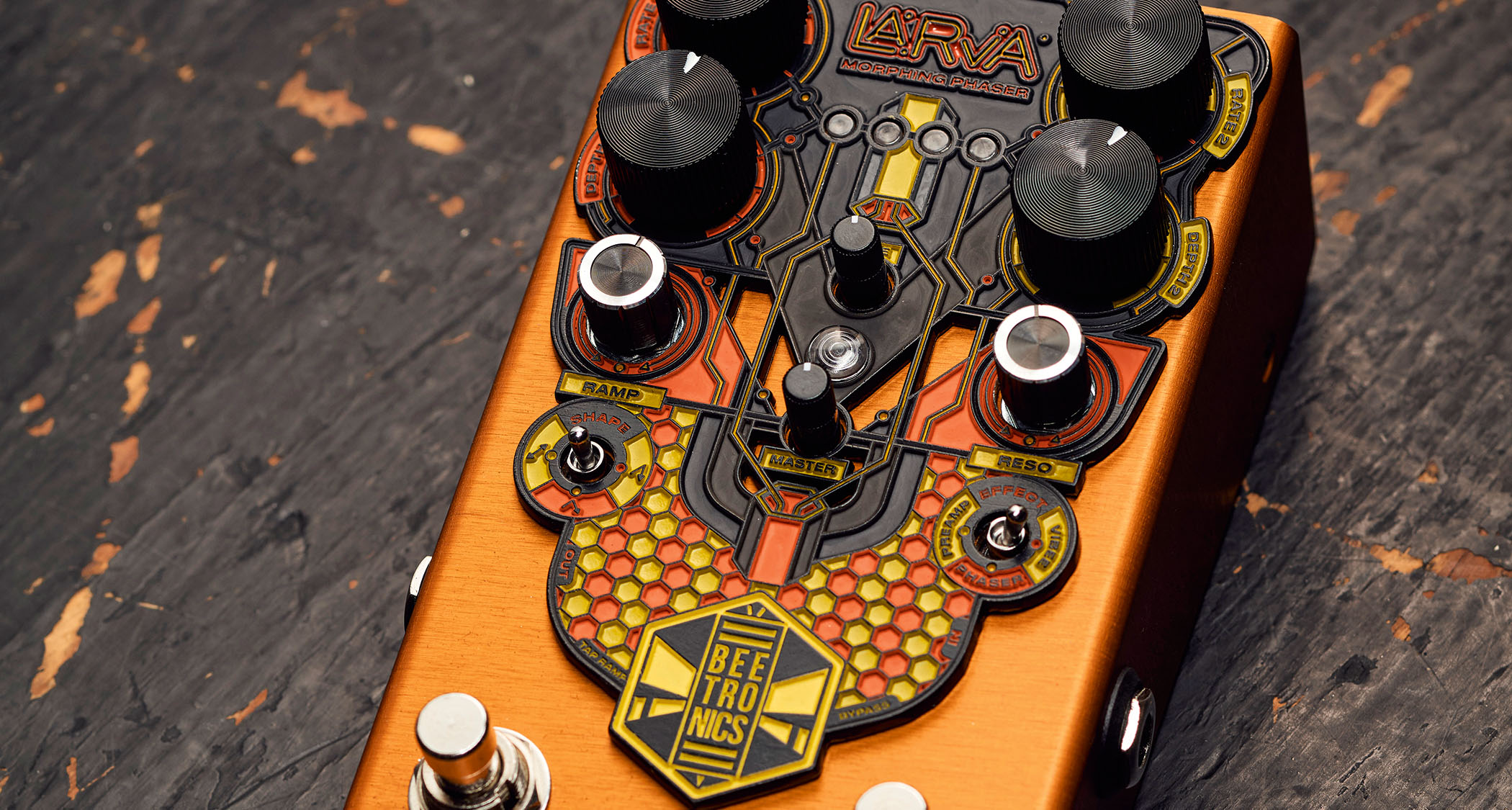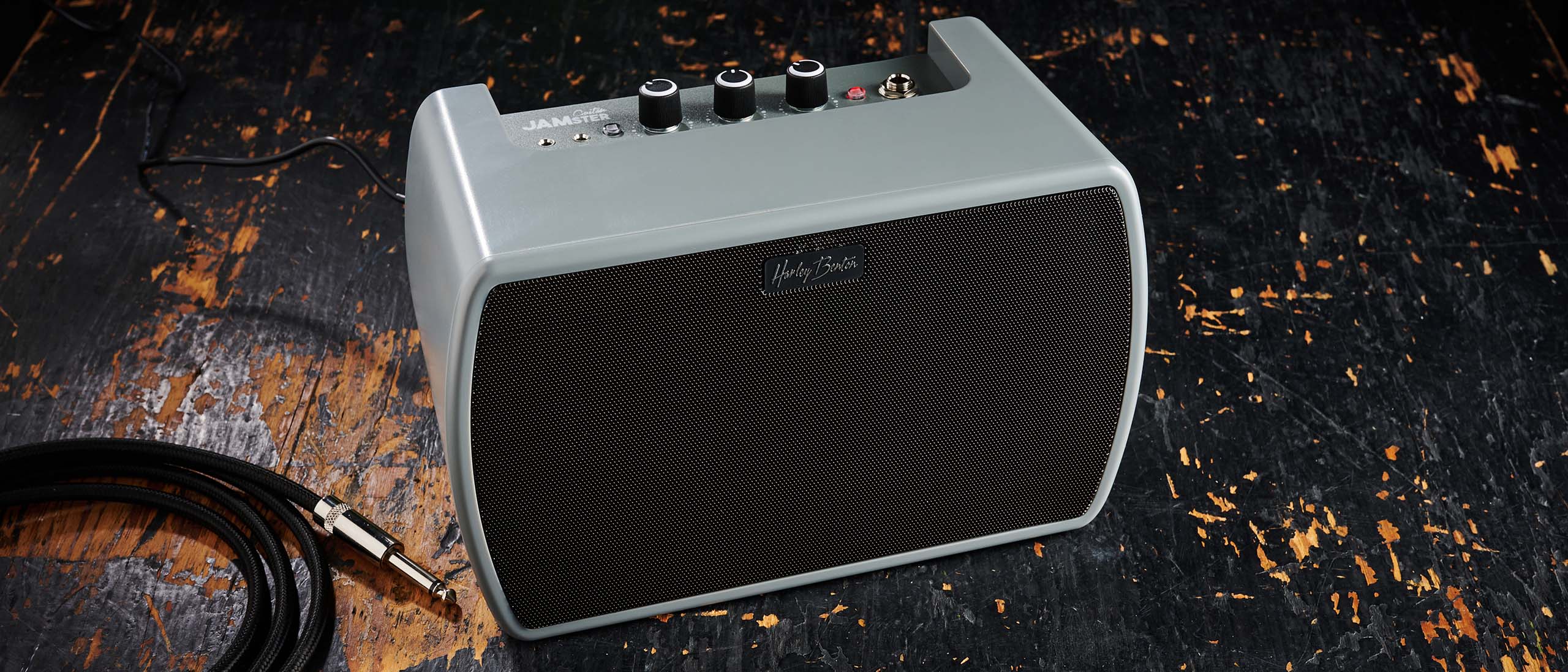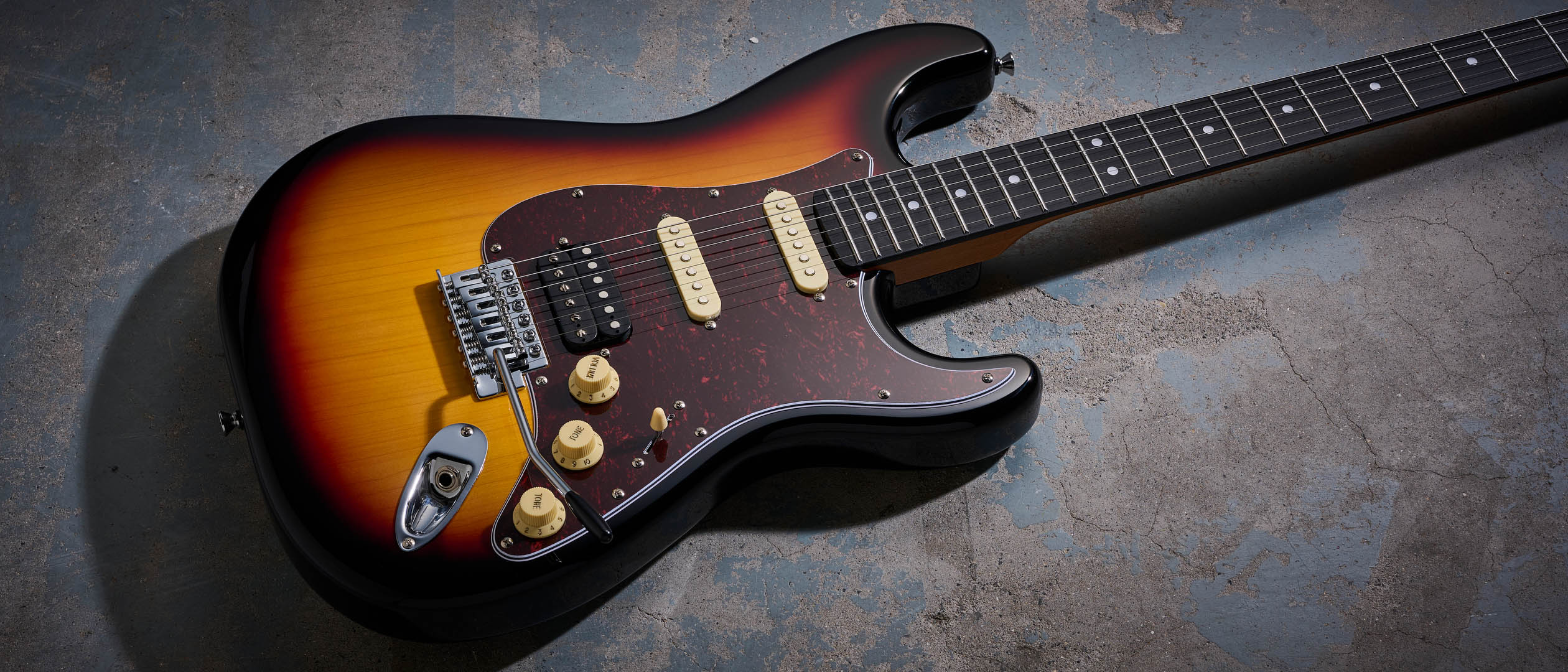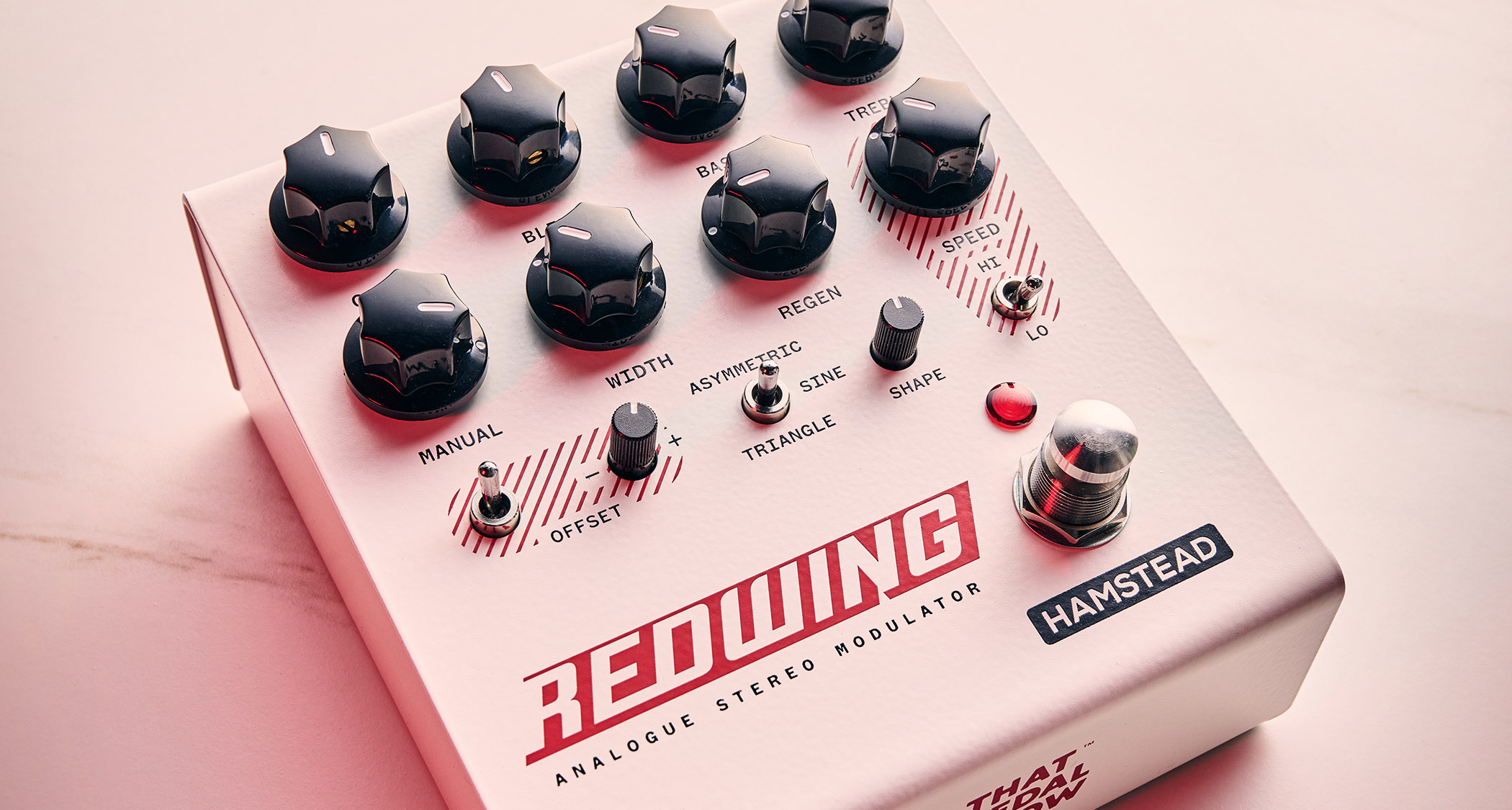Guitar World Verdict
Making the RevivalDRIVE experience more accessible, the Compact offers a practical route to get some authentic-sounding vintage amp tones and overdrive that’s entirely in tune with the sound of your own amp into your rig. One to try!
Pros
- +
Compact size.
- +
Easy to set up.
- +
More affordable.
- +
Authentically amp-like sounds.
- +
Dry knob lets you blend just what you need with your own sound.
Cons
- -
There are fewer parameters, hence less tonal subtlety than the original version, but this is designed to fit a different niche.
You can trust Guitar World
Origin Effects’ RevivalDRIVE Custom pedal was something of a revelation to us when we reviewed it in issue 434. Here was a superbly engineered analogue drive pedal that we concluded felt and sounded like playing through a sorted vintage amp, with an ability to mimic several different ones.
To allow all the nuanced adjustment of parameters that it was capable of, though, the pedal was absolutely covered with knobs and switches, and its eye-watering price ($649, £559 for the Custom version) although justified, must have put it out of reach of many potential users.
Perhaps something more compact, easier to dial in and less expensive would find itself gracing more pedalboards?
That pedal is now here in the form of the RevivalDRIVE Compact, a single-channel pedalboard-friendly pedal with an easily navigable control set.
The reduced control set makes it so much easier and quicker to get to where you want to be
With a smaller footprint, some of the features that made the original so intriguing have had to go, most notably the choice of valve or silicon rectifier and the Ghost parameter that reproduced the subtly underlying extra dimension of low-frequency notes occurring within vintage-amp circuitry.
The essence of the sound, though, remains the same, as does the excellent touch sensitivity, while the reduced control set makes it so much easier and quicker to get to where you want to be.
The toggle switch and allied high-frequency adjuster sets the post-drive EQ for the type of amp or other equipment you’ll be plugged into, and from there you can dial in amp sounds from clean to cranked.
Preamp voicing is addressed with the Highs knob, offering focus on the mid and high frequencies, while More/Pres adjusts power stage characteristics – lower settings yield smooth early transition into distortion, and high-frequency presence increases past midway.
With full control over the low-end, too, you can call up a range of vintage Fender and Marshall flavors, and if you’d like to retain more of the character of your own amp, a Dry knob opens up a world of blends.
Specs
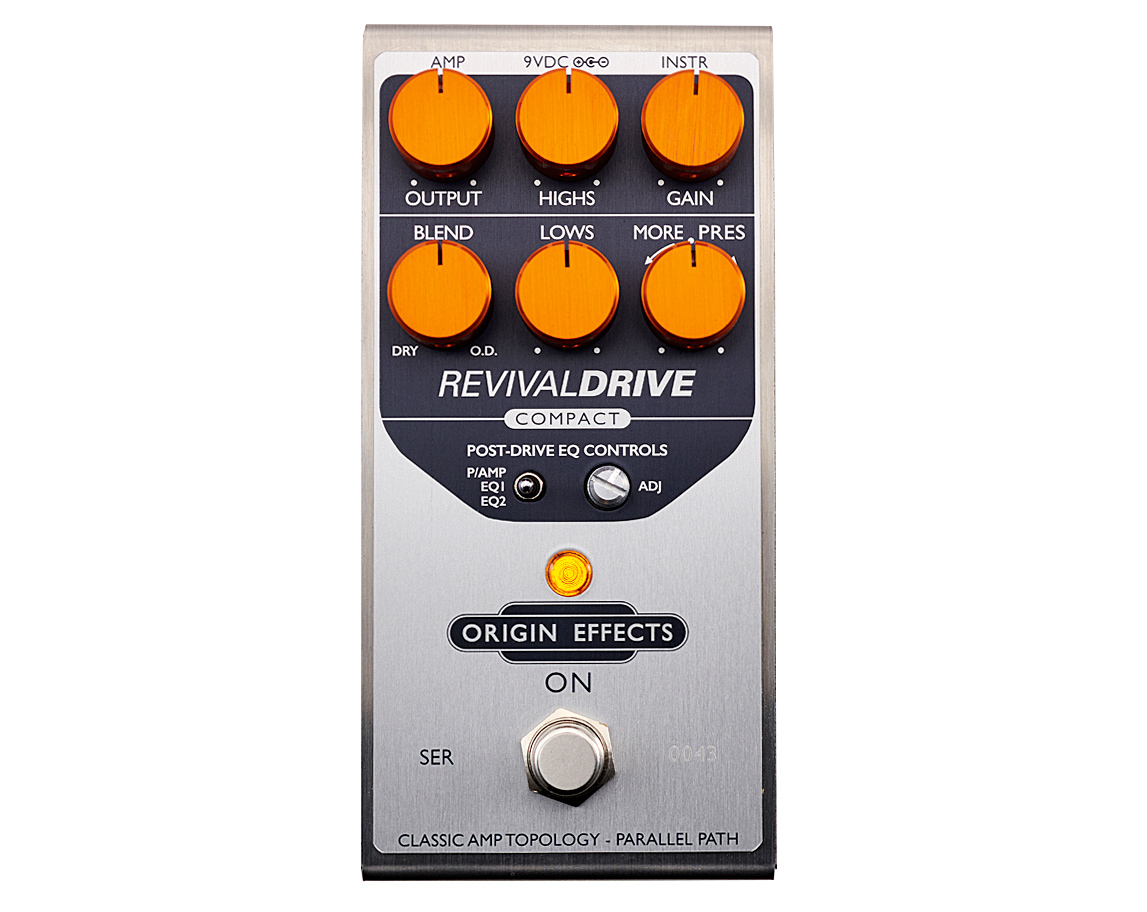
- PRICE: $385, £315
- ORIGIN: UK
- TYPE: Drive pedal
- FEATURES: True bypass,
- CONTROLS: Output, Highs, Gain, Blend, Lows, More/Pres, Post-Drive EQ switch (Power amp/ EQ1-brighter amps/ EQ2-darker amps), Post-Drive EQ adjust, bypass footswitch
- CONNECTIONS: Standard input, standard output
- POWER: 9V DC adaptor (not supplied) 80mA
- DIMENSIONS: 60 (w) x 113 (d) x 55mm (h)
For more information, head to Origin Effects.
Also try...
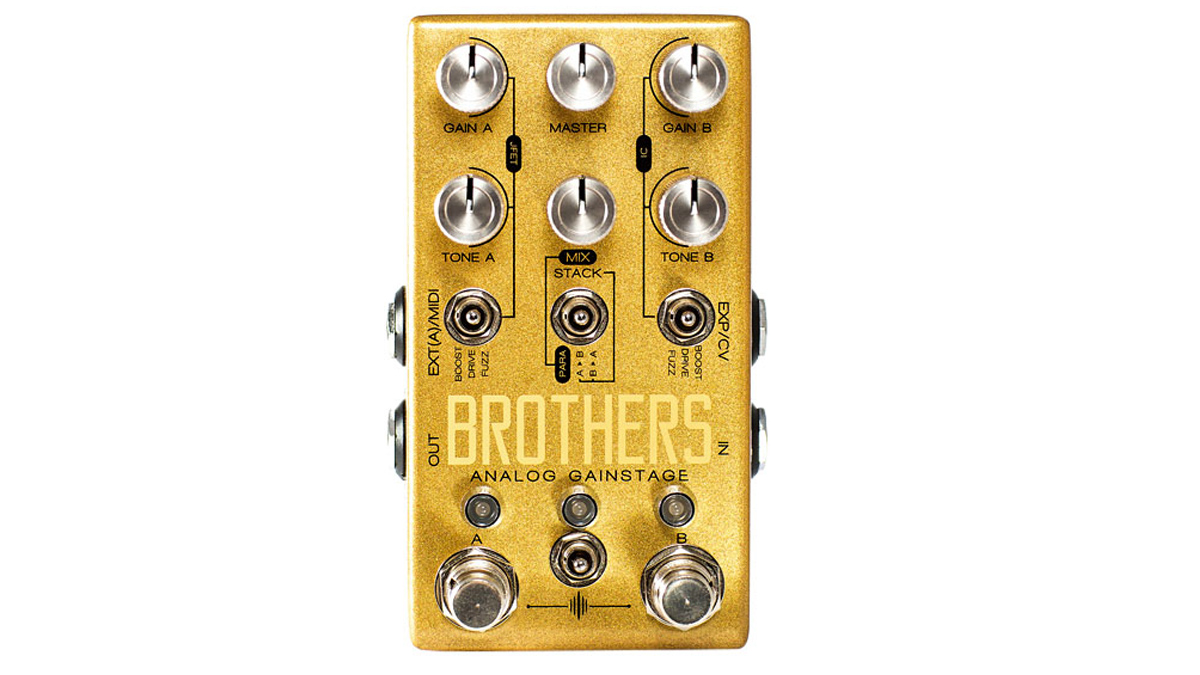
Chase Bliss Audio Brothers Analog Gainstage $/£349
Two independent JFET/IC analogue channels comprise a total of six unique boost, drive or fuzz circuits that can be combined for a comprehensive collection of dirt tones. 33 routings are possible and the pedal supports presets.
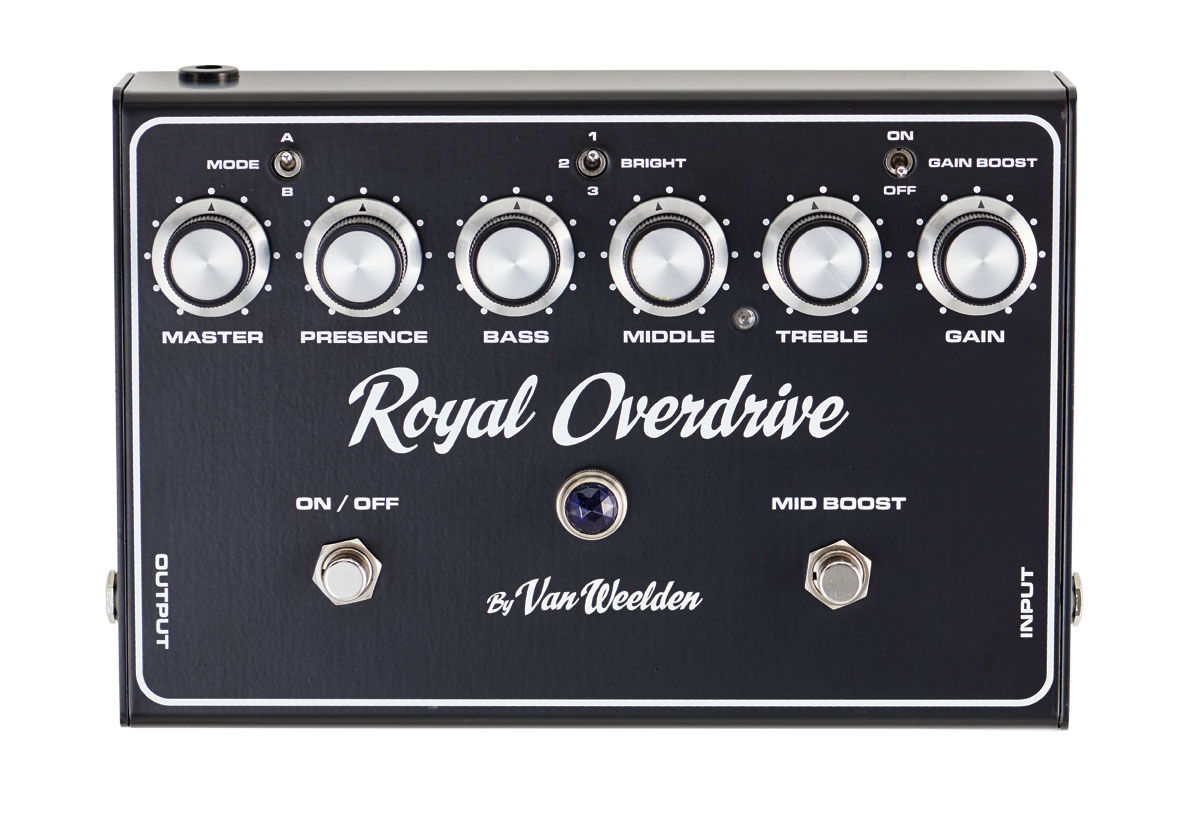
Van Weelden Royal Overdrive $749, £499
Yes, it’s quite large, but this pedal from the Dutch amp manufacturer makes the claim that a solid-state overdrive pedal has never been so close in capturing the sound and dynamic behaviour of real valve amplifier circuits.
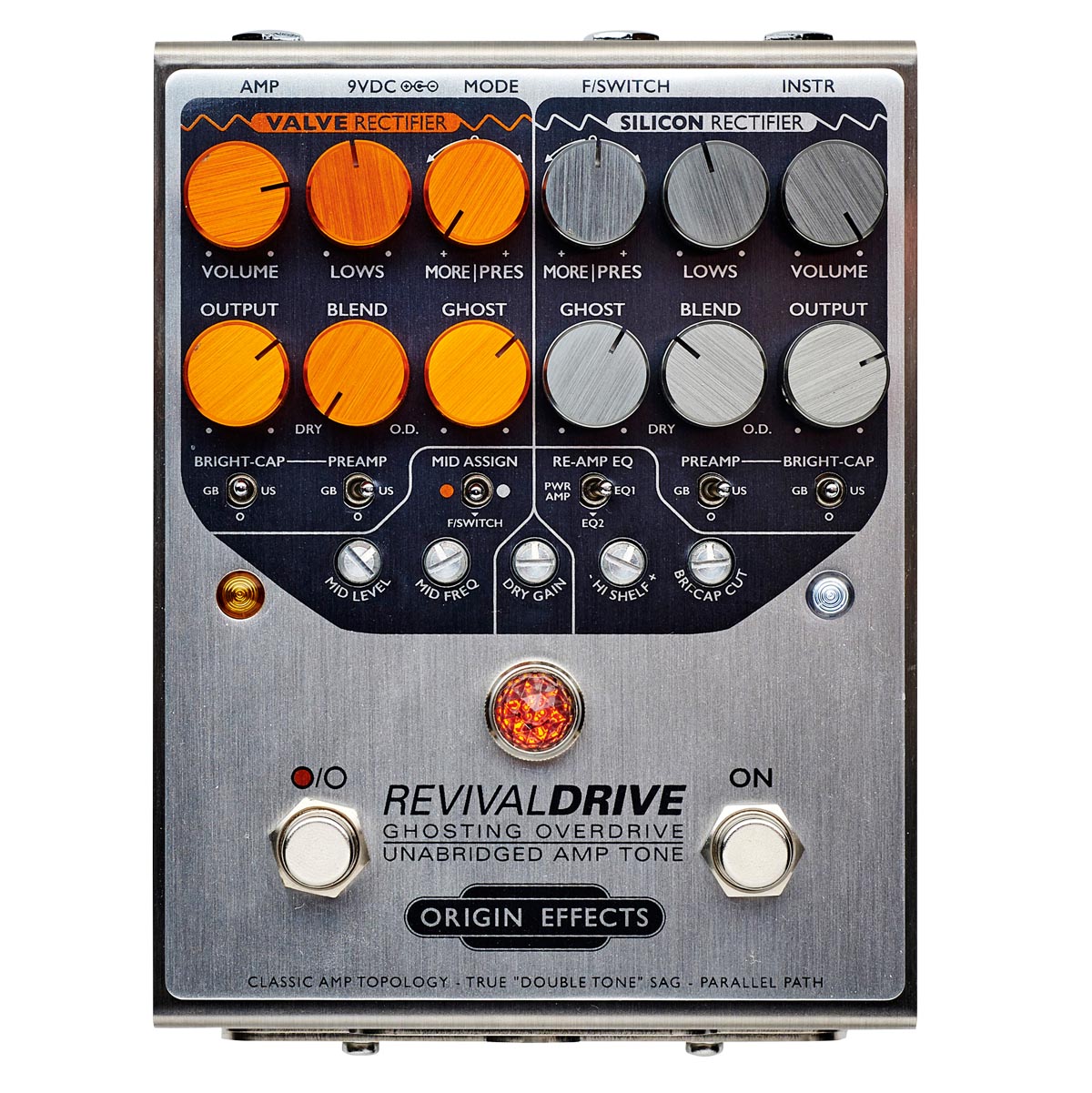
Origin Effects RevivalDRIVE Custom $649, £559
If you have the money and aren’t too bothered about pedalboard space, this most fully spec’d version of the pedal has a full range of facilities that are designed to explore all the nuances of amp tone.
Trevor Curwen has played guitar for several decades – he's also mimed it on the UK's Top of the Pops. Much of his working life, though, has been spent behind the mixing desk, during which time he has built up a solid collection of the guitars, amps and pedals needed to cover just about any studio session. He writes pedal reviews for Guitarist and has contributed to Total Guitar, MusicRadar and Future Music among others.
